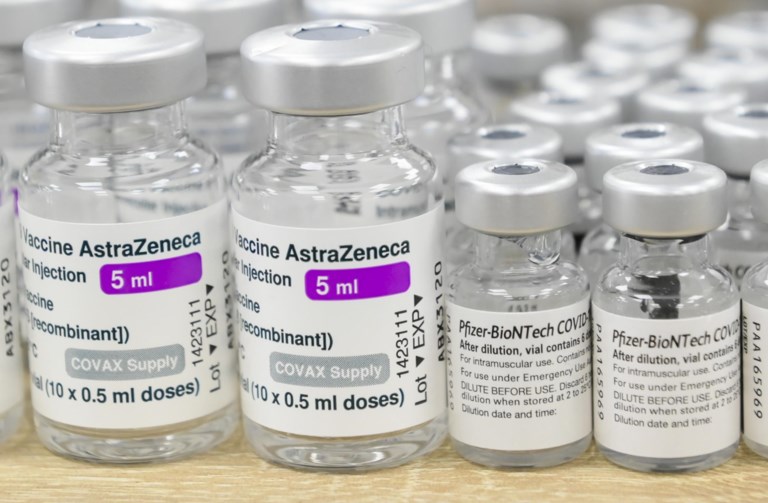The risk of developing blood clots as a result of a coronavirus vaccine is lower than the risk when contracting the disease, the largest study of the side effects of the vaccines showed.
The study, published in the British Medical Journal (BMJ), compared the medical records of 29 million people who received a first Pfizer-BioNTech or Oxford-AstraZeneca vaccine between December 2020 and April 2021 with those of nearly 2 million people who tested positive for Covid-19.
"The risks of haematological and vascular events that led to hospital admission or death were substantially higher and more prolonged after SARS-CoV-2 infection than after vaccination in the same population," the results of the study read.
Earlier this year, AstraZeneca's coronavirus vaccine made headlines after rare cases of blood clotting were linked to the medicine, and despite the European Medicines Agency (EMA) maintaining that its benefits outweighed the risks, various countries, including Belgium, set a minimum age limit for the vaccine.
Although the University of Oxford-led team did find increased relative incidences of various types of blood clotting in the 8-14 days after the AstraZeneca vaccine being administered, it stressed that the smallness of the risk should be noted.
Related News
- What Brussels is doing to increase its vaccination rate
- With nearly 80% of adults vaccinated, Wallonia reorganises vaccination campaign
- Second Johnson & Johnson shot makes antibodies increase ninefold
"For instance, for 10 million people exposed to AstraZeneca's vaccine, there were seven excess events of cerebral venous sinus thrombosis (CVST) in the 28 days after the vaccine," the results read.
It found that for every 10 million people vaccinated with the AstraZeneca vaccine, an extra 107 would be hospitalised or die from thrombocytopenia, which can cause haemorrhages and internal bleeding, but that the risk was nine times higher following an infection.
Meanwhile, an additional 66 people would be hospitalised or die from blood clots in the veins following an AstraZeneca shot, which researchers found was nearly 200 times lower than the risk following an infection.
For the Pfizer vaccine, the study found that for every 10 million people vaccinated, 143 would be hospitalised or die from a stroke, but that this was nearly 12 times lower than the risk after contracting the virus.
Researchers stressed that these risks also need to be balanced against the risks of Covid-19 itself leading to adverse health effects and death.
The period during which there is an increased risk of developing blood clots following the vaccine is also more "specific and short", as after a coronavirus infection, the risk persists "for more than 28 days after infection", compared to 15 to 21 days following the Pfizer shot for strokes and 8 to 14 days for thrombocytopenia with AstraZeneca's vaccine.
According to Public Health England (PHE)'s estimates, vaccines have prevented more than 100,000 deaths in the UK, where the pandemic has claimed 132,000 lives.

